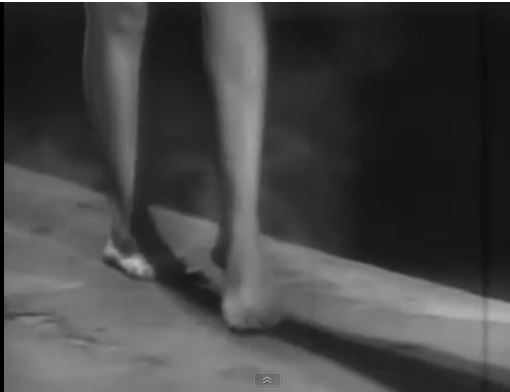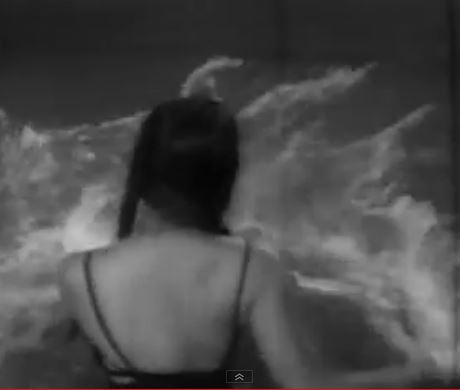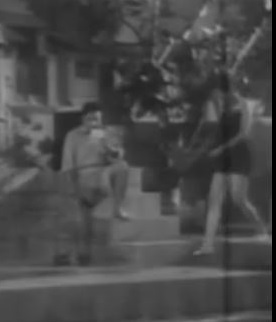Brahmachari (1938)
(→Story) |
|||
| (7 intermediate revisions by one user not shown) | |||
| Line 4: | Line 4: | ||
=Cast and crew= | =Cast and crew= | ||
| + | [[File: Meenakshi Brahmachari.png|Meenakshi in '' Brahmachari '' (1938)|frame|500px]] | ||
| + | [[File: Meenakshi Brahmachari0.jpg|Meenakshi in '' Brahmachari '' (1938)|frame|left|500px]] | ||
| + | [[File: Meenakshi Brahmachari2.jpg|Meenakshi in '' Brahmachari '' (1938)|frame|500px]] | ||
| + | [[File: Meenakshi BrahmachariAA.jpg|Meenakshi in '' Brahmachari '' (1938)|frame|left|500px]] | ||
Director: Master Vinayak | Director: Master Vinayak | ||
| Line 9: | Line 13: | ||
Cast: | Cast: | ||
| − | Master Vinayak, Meenakshi, V.G. Jog | + | Master Vinayak, Meenakshi Shirodkar, V.G. Jog, Damuanna Malvankar, Javdekar |
| − | + | ||
| − | + | ||
| − | + | Dialogues: P.K. Atre (Marathi) | |
| − | + | Pandit Indra (Hindi-Urdu) | |
| − | + | ||
| − | + | Cinematography: Pandurang Naik | |
| − | + | ||
| + | Music: Dada Chandekar | ||
| + | |||
| + | Lyrics: Pandit Indra | ||
| + | |||
| + | =The film= | ||
| + | ''Brahmachari'' was made in Marathi, with an equally popular Hindi-Urdu version. | ||
| + | |||
| + | =The background= | ||
| + | India was a British colony at the time, and in the grip of its freedom struggle. Nationalist Hindus were asking themselves why first several Muslim armies and the European (mainly British) had managed to colonise India, for the last 900 years or so. The reason, they felt, lay in the Hindus' lack of military, indeed, any kind of physical, training. | ||
| + | =Story and context= | ||
| + | In the 1930s many idealistic, young, middle-class Hindu men were attracted to a celibate-muscular version of Hinduism. (The Boy Scouts movement in the west and celibate versions of Islam were also doing the rounds around the same time--for young men from their respective communities.) ' Brahmachari' means 'celibate' and the film's hero Audumbar (Vinayak) has resolved to be celibate. However, saucy, playful Kishori (Meenakshi) leads him away from the straight and narrow, partly by appearing in a swimming costume. | ||
| + | |||
| + | The film, in effect, poked fun at this celibate-muscular version of Hinduism. | ||
Latest revision as of 22:41, 15 April 2014
Contents |
[edit] Cast and crew
Director: Master Vinayak
Writer: P.K. Atre
Cast: Master Vinayak, Meenakshi Shirodkar, V.G. Jog, Damuanna Malvankar, Javdekar
Dialogues: P.K. Atre (Marathi)
Pandit Indra (Hindi-Urdu)
Cinematography: Pandurang Naik
Music: Dada Chandekar
Lyrics: Pandit Indra
[edit] The film
Brahmachari was made in Marathi, with an equally popular Hindi-Urdu version.
[edit] The background
India was a British colony at the time, and in the grip of its freedom struggle. Nationalist Hindus were asking themselves why first several Muslim armies and the European (mainly British) had managed to colonise India, for the last 900 years or so. The reason, they felt, lay in the Hindus' lack of military, indeed, any kind of physical, training.
[edit] Story and context
In the 1930s many idealistic, young, middle-class Hindu men were attracted to a celibate-muscular version of Hinduism. (The Boy Scouts movement in the west and celibate versions of Islam were also doing the rounds around the same time--for young men from their respective communities.) ' Brahmachari' means 'celibate' and the film's hero Audumbar (Vinayak) has resolved to be celibate. However, saucy, playful Kishori (Meenakshi) leads him away from the straight and narrow, partly by appearing in a swimming costume.
The film, in effect, poked fun at this celibate-muscular version of Hinduism.



